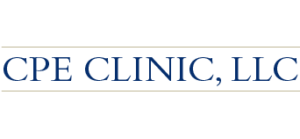Psychiatric Diagnostic Evaluations and Medication Management
A comprehensive psychiatric evaluation is used to diagnose emotional, behavioral, or developmental disorders. Once a diagnosis is made, medication options will be discussed, and education will be provided on the actions, uses, and side effects. When the patient agrees on a medication and treatment option, the medication is prescribed. Medication management is the aspect of psychiatric care where we monitor the effectiveness of medication over a course of time to determine if the treatment meets the patient’s goals.
Individual Therapy*
Individual therapy (sometimes called “psychotherapy” or “counseling”) is a process through which clients work one-on-one with a trained therapist. People seek therapy for a wide variety of reasons, from coping with major life challenges or childhood trauma, to dealing with depression or anxiety, to simply desiring personal growth and greater self-knowledge.
Psychological and Psycho-educational Evaluations
A Psychological Evaluation, also called a Psycho-educational Evaluation, assesses how a person learns and processes information, highlighting strengths and weaknesses in cognitive functioning. A subset of these tests can be often used for Gifted and Talented program admissions. Ensuring that the person has the right support and knowing how to ask for it and advocate in the process is a key step to enabling your loved one to overcome any learning challenges or develop their talents. Click here for more details on Psychological Evaluations.
Early Childhood Development Evaluations
We assess all aspects of early development and identify young children struggling with developmental challenges, including sensory integration or processing issues, speech and motor delays, or social, emotional or behavioral challenges. The goal of testing is to understand the nature of a child’s challenges, clearly describe strengths and weaknesses and guide parents toward appropriate intervention. Click here for more details on Early Childhood Development Evaluations.
Our clinicians are well versed in assessing for Autism
Autism Spectrum Disorder (ASD) can be difficult to diagnose because there is no standard medical test for a straightforward diagnosis. However, at CPE Clinic, our clinicians are well versed in assessing for autism. Diagnosing ASD involves assessing multiple aspects of development. An accurate diagnosis is critical to ensuring appropriate follow-up and services. A comprehensive autism evaluation often includes:
- A clinical interview with one of our licensed doctoral level clinicians that includes a comprehensive history (medical, educational, social, etc.)
- Direct observation with our clinicians
- Behavioral, emotional and social assessment tools
- ASD-specific assessment tools depending on age and functionality (E.g., Modified Checklist for Autism in Toddlers, Childhood Autism Rating Scale-Second Edition, Social Communication Questionnaire, Social Responsiveness Scale-Second Edition, Autism Diagnostic Observation Schedule-Second Edition)
- Assessment of cognitive functioning including strengths and weaknesses
- Assessment of speech and language, sensory-related issues, fine motors skills, and adaptive functioning
- Assessment of executive functioning, learning and memory
Family Therapy
Family therapy is a form of psychotherapy that seeks to reduce distress and conflict by improving the interactions between family members. This type of counseling views problems as patterns or systems that need adjusting, as opposed to viewing problems as residing in the person.
Coaching
Life coaches help people set and/or achieve goals through a variety of methods that often involve conversational tools and self-reflection exercises. To put it simply, life coaching is oriented towards the present and future. Coaching is proactive, so there will always be invitations to take action on your realizations and insights. Click here to see if coaching is right for you.

